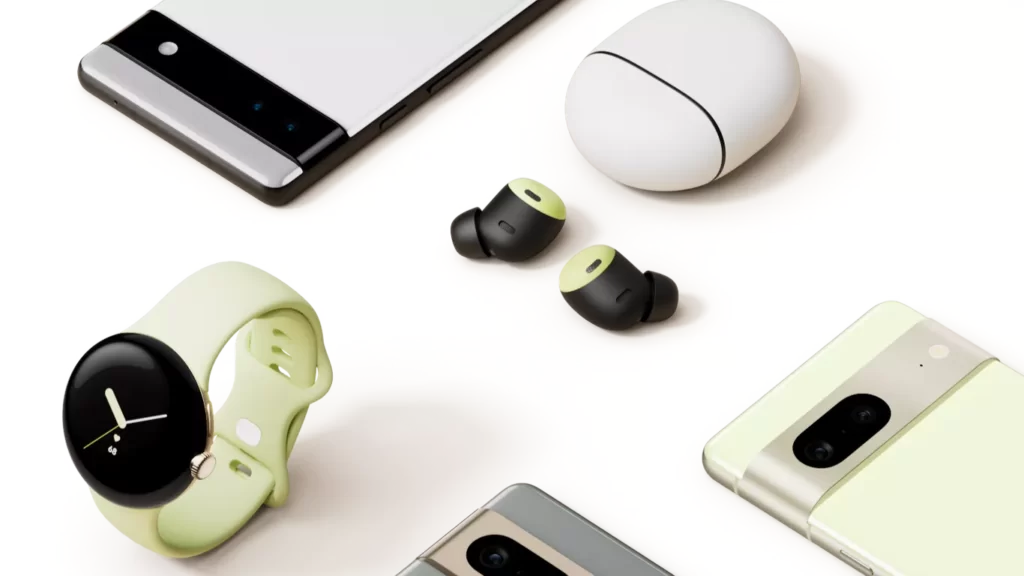Google on Wednesday announced a new affordable smartphone, the Pixel 6a, as well as a set of noise-canceling Pixel Buds Pro headphones and its first Pixel smartwatch.
Why it matters: Google is increasing its investment in developing its own hardware and incorporating technology from its Fitbit acquisition.
Details:
- The $449 Pixel 6a uses lower-end cameras and foregoes some niceties to come in hundreds of dollars cheaper than the Pixel 6 and Pixel 6 Pro. It also has a smaller screen than the Pixel 6 and Pixel 6 Pro, which some may see as a feature rather than a drawback.
- The $199 Pixel Buds Pro offers active noise cancellation, with support for spatial audio coming later via a software update. Both the Pixel 6a and Pixel Buds Pro will be available for pre-order July 21 and start shipping July 28.
- Google offered a first look at the Pixel Watch, due out this fall. The round smartwatch includes Fitbit exercise and sleep tracking and will come in both WiFi and cellular models.
- It also teased the design for the Pixel 7 and Pixel 7 Pro, due out later this year, which will be powered by an updated Google Tensor chip.
- Google also said it plans a Pixel Tablet, to be released sometime in 2023.
The big picture: While Google spent only a small portion of its I/O developer conference keynote talking hardware, it’s a huge area of investment for the company. Plus, people tend to pay more attention to shiny new devices than to software updates.
Between the lines: Google saved perhaps its coolest demo for the end, showing prototype AR glasses that allow people to speak different languages and look at one another while seeing a translation on the display of the glasses.
Also announced at Google I/O:
- An “AI test kitchen” online will allow people to see some of the capabilities of new machine learning models while also help to spot and report flaws and limitations.
- Google is adding 24 languages (spoken by 300 million people) to Translate, in part by reducing its reliance on bilingual examples as a prerequisite to adding new languages.
- The Chrome browser will create virtual credit card numbers when people shop online, potentially reducing fraud. The feature will come later to iOS and Android.
- An update to Google Wallet will support, among other things, digital state driver’s licenses, similar to a feature Apple is offering for the iPhone.
- Google is adding a more immersive view of cities and restaurants in Maps, starting with a handful of cities.

Source:axios.com

